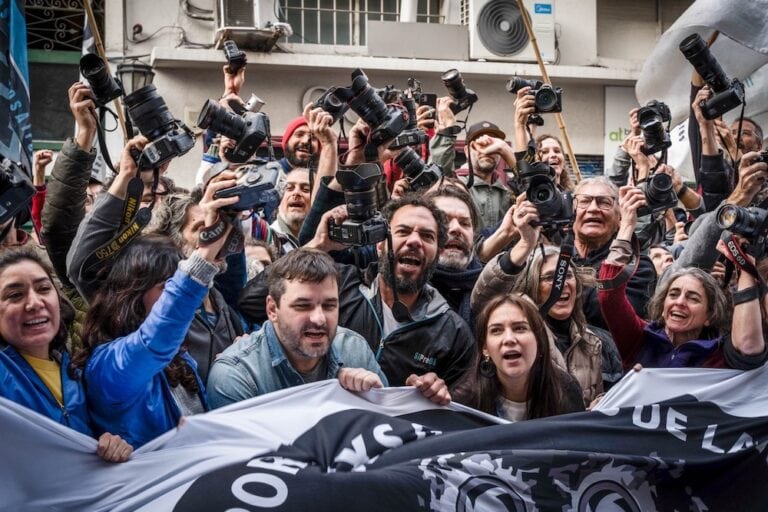During a press conference in which he complained of a “political confrontation” by “opposition media”, Chief of Staff Jorge Capitanich tore up two pages of Clarín, which on Sunday had published articles about the death of public prosecutor Alberto Nisman.
The Inter American Press Association (IAPA) today (3 February 2015) condemned an act of aggression by the chief of staff of Argentine’s President Cristina Fernández de Kirchner who tore up pages of the newspaper Clarín during a public meeting held at the government headquarters in protest at articles written by three of the paper’s journalists.
IAPA President Gustavo Mohme, editor of the Lima, Peru, newspaper La República, said he regretted the fact that “President Kirchner’s government has involved the press in an alleged ‘political confrontation,’ discrediting the media as political opponents, instead of regarding them as a force watching over those in power, as occurs in democratic societies.”
Yesterday, during a press conference in which he complained of a “political confrontation” by “opposition media”, in front of television cameras, Chief of Staff Jorge Capitanich tore up two pages of Clarín, which on Sunday had published articles about the death of public prosecutor Alberto Nisman, written by reporters Nicolás Wiñazki and Daniel Santoro and columnist Eduardo van de Kooy. In the articles there was a reference to alleged statements made by Capitanich about press’s coverage of Nisman’s death.
The chairman of the IAPA’s Committee on Freedom of the Press and Information, Claudio Paolillo, editor of the Montevideo, Uruguay, weekly Búsqueda, declared, “It is a disgrace that President Kirchner and her closest collaborators have fallen into the despicable practice that is frequently and enthusiastically engaged in by Ecuador’s President Rafael Correa, one of the worst predators of freedom of expression in the Americas.”
He added that the Argentine government “should not fall into the temptation of accusing and discrediting journalists in public acts of sarcasm, as bellicose and confrontational speeches tend to incite violence.”
Mohme and Paolillo said that this act of disrespect towards the press “cannot be taken lightly, when in Argentina, regrettably, journalists have been exposed to other governmental actions that go against freedom of the press, such as cases of spying on the media, symbolic trials of journalists and acts of violence.”


